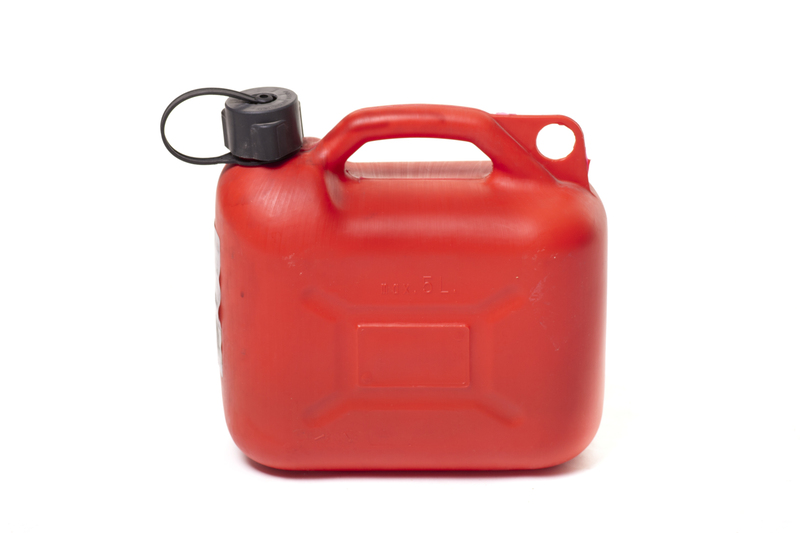Insurance Implications When Moving a Piano Yourself Versus With Pros
Moving a piano is no small feat. With their great size, weight, and delicate inner mechanisms, pianos are one of the most difficult and expensive items to move safely. Whether you own an upright, a baby grand, or a concert grand piano, ensuring its safe relocation is paramount. One crucial factor often overlooked during the moving process is how insurance implications differ when moving a piano yourself versus with professional movers. This comprehensive guide will explore all the nuances of piano moving insurance, the risks involved, and how to protect your valuable instrument.

Understanding Piano Moving Risks
Before diving into the specifics of insurance, it's essential to be aware of why moving a piano carries significant risk. Here are some common risks involved:
- Physical Damage: Scratches, dents, broken legs, or cracked soundboards.
- Mechanical & Internal Damage: Harm to internal components like strings, pedals, keys, and action parts.
- Personal Injuries: Due to the immense weight (up to 1,400 lbs for some grands), improper handling can cause serious physical harm.
- Property Damage: Damage to floors, stairs, doorways, or walls while maneuvering the piano.
Because of these risks, understanding insurance policies--and how they apply when you move a piano yourself or hire professional movers--is crucial to protect your investment and your home.
Moving a Piano Yourself: Insurance Challenges
Many people consider do-it-yourself piano moving as a cost-saving solution. However, when it comes to insurance, choosing to move a piano on your own brings up unique challenges and limited coverage options.
Homeowners & Renters Insurance Coverage
One of the first questions people have is whether their existing homeowners or renters insurance policy covers damage to their piano during a DIY move. The answer is often no.
- Standard homeowners or renters insurance may cover personal property, but it rarely includes damage caused by moving, transit, or improper handling--especially when you are moving the item yourself.
- Some policies feature named perils only, such as coverage for fire or theft, but not accidental damage that occurs while moving large objects.
Tip: Always review your policy or talk with your insurance agent before the move. Ask about exclusions for property-in-motion or "self-move" coverage.
Limited Third-Party Coverage
If you rent a moving truck or van (from companies like U-Haul or Penske), you may have the option to buy third-party rental truck insurance. However, these policies typically cover only:
- Damage to the truck itself
- Liability coverage for accidents on the road
Damage to your belongings inside the truck (including the piano) is rarely covered without purchasing coveted supplemental "cargo insurance"--which may or may not be available.
Personal Liability Concerns
More concerning is the risk of personal injury or accidental property damage during the move. If you (or friends helping you) are hurt, or if you accidentally damage a wall, doorway, or stairwell, most standard insurance will not cover these losses unless you have separate liability coverage or supplemental insurance.
Specialized Instrument Insurance
Some piano owners invest in musical instrument insurance or specific "valuable articles" riders. These can provide broader coverage, including accidental breakage during a move. However, even these special policies often exclude damage during self-moves or require the use of professional movers to maintain coverage.
Professional Piano Movers: Insurance Advantages
Choosing to hire professional piano movers brings significant insurance advantages. Aside from their expertise, tools, and equipment, pros offer more comprehensive protections for your valuable investment.
Professional Liability & Cargo Insurance
Reputable piano moving companies carry several forms of insurance to protect your instrument and property:
- Cargo Insurance: Covers loss or damage to your piano while in transit, typically up to a certain declared value.
- General Liability Insurance: Protects you if movers accidentally damage your property (walls, stairs, floors) while moving the piano.
- Workers' Compensation: Protects you from liability if a mover is injured on your property.
These policies are standard for licensed moving companies and are an essential part of their service offering.
Declared Value & Valuation Options
Professional movers often provide several different valuation options:
- Released Value Protection: A basic, no-cost coverage mandated by federal law, but it only pays out a small amount per pound (usually $0.60/pound)--nowhere near a piano's true value.
- Full Value Protection: For an additional fee, this offers much more substantial protection, based on repairing, replacing, or paying cash for the full value of the piano if it's damaged or lost.
- Additional Insurance: Many piano movers allow you to purchase supplemental insurance for high-value instruments or unique antiques to ensure complete coverage.
Certificate of Insurance (COI)
If you live in an apartment, condo, or managed building, property managers often require movers to provide a Certificate of Insurance naming the building as an additional insured party. Professional piano movers will have no trouble providing this documentation, ensuring that both you and the building are protected from liability.
Comparing Costs and Risks
Potential Losses with DIY Moving
It's tempting to cut costs by moving a piano yourself, but when insurance implications are considered, the risks are clear:
- High Out-of-Pocket Costs: DIY damage means you pay for repairs--or a replacement--out of pocket.
- No Liability Coverage: You are personally responsible for injury or damage during the move.
- Loss of Investment: Fine pianos, especially antique or concert models, can be worth tens of thousands of dollars and irreparably damaged if dropped.
Why Pros are Safer for Insurance & Peace of Mind
- Comprehensive Insurance: You are protected against nearly all risks when you opt for professional piano moving insurance.
- Expertise Included: Pros understand how to disassemble, pad, lift, and maneuver your piano to minimize risk.
- Documentation: Proper inventory, photos before/after, and contracts help document the condition of your piano, making insurance claims much easier if needed.
How to Secure the Best Insurance When Moving Your Piano
Tips for DIY Piano Moving Insurance
- Check Your Homeowners/Renters Policy for coverage of in-transit damage and ask about move-specific riders.
- Consider Instrument Insurance: Look for policies or riders that cover accidental damage, even during self-moves (rare but possible with certain specialty insurers).
- Verify Third-Party Truck Insurance: If renting a truck, investigate available cargo insurance and its terms.
- Document Everything: Take photos and videos of your piano before, during, and after the move for possible future claims.
What to Ask Your Professional Piano Movers About Insurance
- Do you carry General Liability, Cargo, and Workers' Compensation Insurance?
- What valuation options do you offer? Is full value protection available?
- Are there special coverage options for high-value or antique pianos?
- Can you provide a Certificate of Insurance for my building?
- What is the process for filing a claim in case of damage or loss?

Frequently Asked Questions About Piano Moving and Insurance
Can I insure my piano when moving it myself?
In most cases, standard homeowners or renters insurance does not cover accidental damage that occurs while owners move items themselves. Some specialty insurers offer musical instrument policies or valuable articles riders that might extend coverage to DIY moves, but such policies are rare and often expensive. Always read the fine print.
Is piano damage always covered when I hire professional movers?
Most reputable, licensed piano movers offer basic liability and cargo insurance, but coverage can be limited unless you purchase full value protection or additional insurance. Always check policy details and opt for higher protection levels for expensive pianos.
What should I do if my piano is damaged during the move?
Whether you move the piano yourself or hire professionals, document all damage immediately with photos, keep repair estimates, and file an insurance claim promptly. If working with professionals, follow their specific claims process.
How can I prove that any damage happened during the move?
Thoroughly photograph your piano before and after the move. If hiring movers, ensure they note the instrument's condition on the inventory sheet before moving and before delivery.
Conclusion: Protecting Your Piano With the Right Insurance
Choosing to move a piano yourself or with professionals involves more than just logistics--it's about safeguarding your treasured investment against the unexpected. The bottom line? DIY piano moving insurance is rare, expensive, and often incomplete. On the other hand, professional piano movers offer comprehensive insurance protections, liability coverage, and peace of mind that far outweigh the upfront moving cost.
If your piano is of significant monetary or sentimental value, always invest in proper insurance coverage--and, whenever possible, trust the job to experienced piano movers with proven insurance credentials. Their expertise, specialized tools, and strong insurance policies will keep your piano safe and your mind at ease during its transition to a new home.



